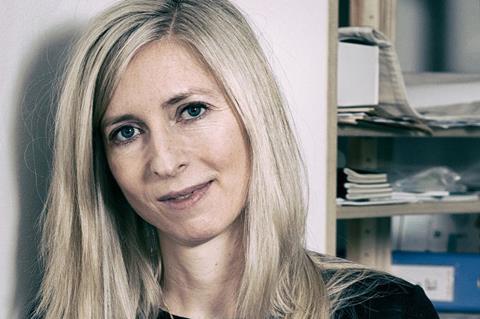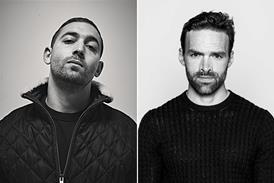
Austrian filmmaker Jessica Hausner is writing a film about workplace culture with the working title Toxic.
Hausner, most recently in Cannes Competition with Club Zero, said this will be her most optimistic and hopeful film. “The new idea is going to be about someone who tries to improve the world and the film has a happy end. It’s about the hope you can change things for the better.”
The film will be about “working hours, the working atmosphere - toxic workers,” she continued, explaining she had yet to determine whether the film will be shot in English or German.
Hausner’s sister Tanja Hausner, one of the director’s trusted advisors, is already giving feedback on the project. “First I do a long research and then I do the scripting. It takes me normal a year to develop a story,” the filmmaker explained.
She has not ruled out the possibility of shooting again in English and with UK partners, as she did on both her recent features Little Joe and Club Zero. She says she has a natural affinity with the British.
“I can connect to the dry humour. Maybe it’s a cliché but I felt there is a very dry ironic humour in Britain combined with that exaggerated politeness - and I kind of like that.”
The film, which will be made through her outfit Coop99, will take place in a company. Philippe Bober is again set to be involved as producer and his company Coproduction Office to handle international sales.
”MeToo changed everything”
Hausner was talking to Screen during the Sarajevo Film Festival which hosted a retrospective of her films. She spoke frankly about the virulent sexism that existed within the Austrian industry when she began her career in Vienna in the 1990s.
“Back then, when I started, I was a young woman and there were no women in the Austrian film industry. The producers that produced [Michael] Haneke and Ullrich Seidl, I didn’t trust them, that they would appreciate and honour my ideas as much as they honoured the ideas of those male colleagues. It is sad but it is true. That was one of the reasons I founded my now production company because I had the feeling that I cannot rely on that male tradition.”
Thanks to #MeToo, the director believes Austrian chauvinism is at last now being confronted.
“The whole #MeToo movement has challenged us all and has shown us that this patriarchy exists. We nearly had forgotten…I was living in a world where I decided to accept it. But then came #MeToo and I decide maybe I don’t have to accept it, I don’t have to live with it. To me, this #MeToo movement really was an eye-opener. It changed a lot.”
The Austrian director acknowledged she had a generally pessimistic and sceptical attitude toward life .“Yes, I do. I can say as much as that I am lucky to have a wonderful husband and a wonderful son - and so I do feel something like love. But I also question those feelings immediately. But I think that is OK. They can both exist at the same time - the feeling and the intellectual questioning of it. What lurks in the background is decay. Decay in every sense can happen. Even if you love someone, this love can change throughout the years. You can live today, you can die tomorrow,” she ruminated in typically cheerful fashion.
Hausner is a Sarajevo regular.
“The first time I went was in 1999, very early after the war. The historical background impressed me a lot. The war had a great impact on this city, a very sad, dramatic and tragic impact. I felt it very strongly back then. Since then, I have had a very warm-hearted relationship to the city and I come again and again…I always have the feeling the Q&As and the screenings are especially interesting. The audiences ask good questions and they are really interested. I like it very much.”
She gave masterclass in which she explained why she loves the work of experimental US filmmaker Maya Deren and the early days of her career.
“I had planned to become a writer. I was writing short stories but I had a friend whose father was working for television back then …so we borrowed the video camera of the father of my friend and made a film out of one of my short stories,” Haunser reminisced. Her friend did the acting. She directed and shot the film.
“That was exactly the moment that fascinated me - to see what I had imagined happening in front of my eyes. I think this notion of doing it, making it become real, is what I love about filmmaking.”
When she entered film school in Vienna in the early 1990s, Hausner didn’t have any specific role models. “I had to find my own way in the jungle - and I thought doing that, maybe it’s best to go international right from the beginning,” she said of why she immediately started submitting her shorts to international festivals.
Sarajevo Film Festival closed on Saturday August 18.
























No comments yet